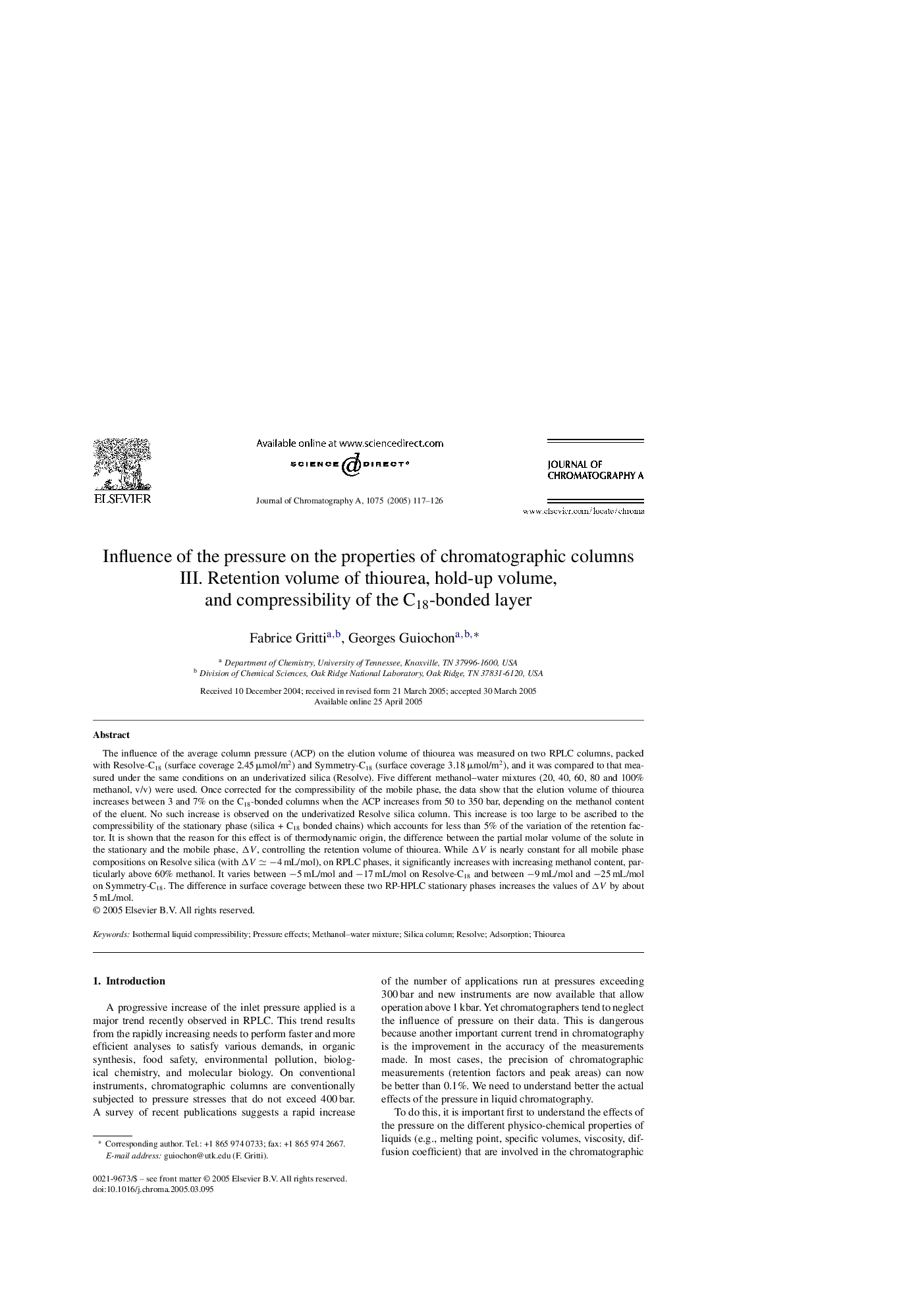| Article ID | Journal | Published Year | Pages | File Type |
|---|---|---|---|---|
| 9749066 | Journal of Chromatography A | 2005 | 10 Pages |
Abstract
The influence of the average column pressure (ACP) on the elution volume of thiourea was measured on two RPLC columns, packed with Resolve-C18 (surface coverage 2.45âμ mol/m2) and Symmetry-C18 (surface coverage 3.18âμ mol/m2), and it was compared to that measured under the same conditions on an underivatized silica (Resolve). Five different methanol-water mixtures (20, 40, 60, 80 and 100% methanol, v/v) were used. Once corrected for the compressibility of the mobile phase, the data show that the elution volume of thiourea increases between 3 and 7% on the C18-bonded columns when the ACP increases from 50 to 350 bar, depending on the methanol content of the eluent. No such increase is observed on the underivatized Resolve silica column. This increase is too large to be ascribed to the compressibility of the stationary phase (silica + C18 bonded chains) which accounts for less than 5% of the variation of the retention factor. It is shown that the reason for this effect is of thermodynamic origin, the difference between the partial molar volume of the solute in the stationary and the mobile phase, ÎV, controlling the retention volume of thiourea. While ÎV is nearly constant for all mobile phase compositions on Resolve silica (with ÎVââ4âmL/mol), on RPLC phases, it significantly increases with increasing methanol content, particularly above 60% methanol. It varies between â 5âmL/mol and â 17âmL/mol on Resolve-C18 and between â 9âmL/mol and â 25âmL/mol on Symmetry-C18. The difference in surface coverage between these two RP-HPLC stationary phases increases the values of ÎV by about 5âmL/mol.
Related Topics
Physical Sciences and Engineering
Chemistry
Analytical Chemistry
Authors
Fabrice Gritti, Georges Guiochon,
